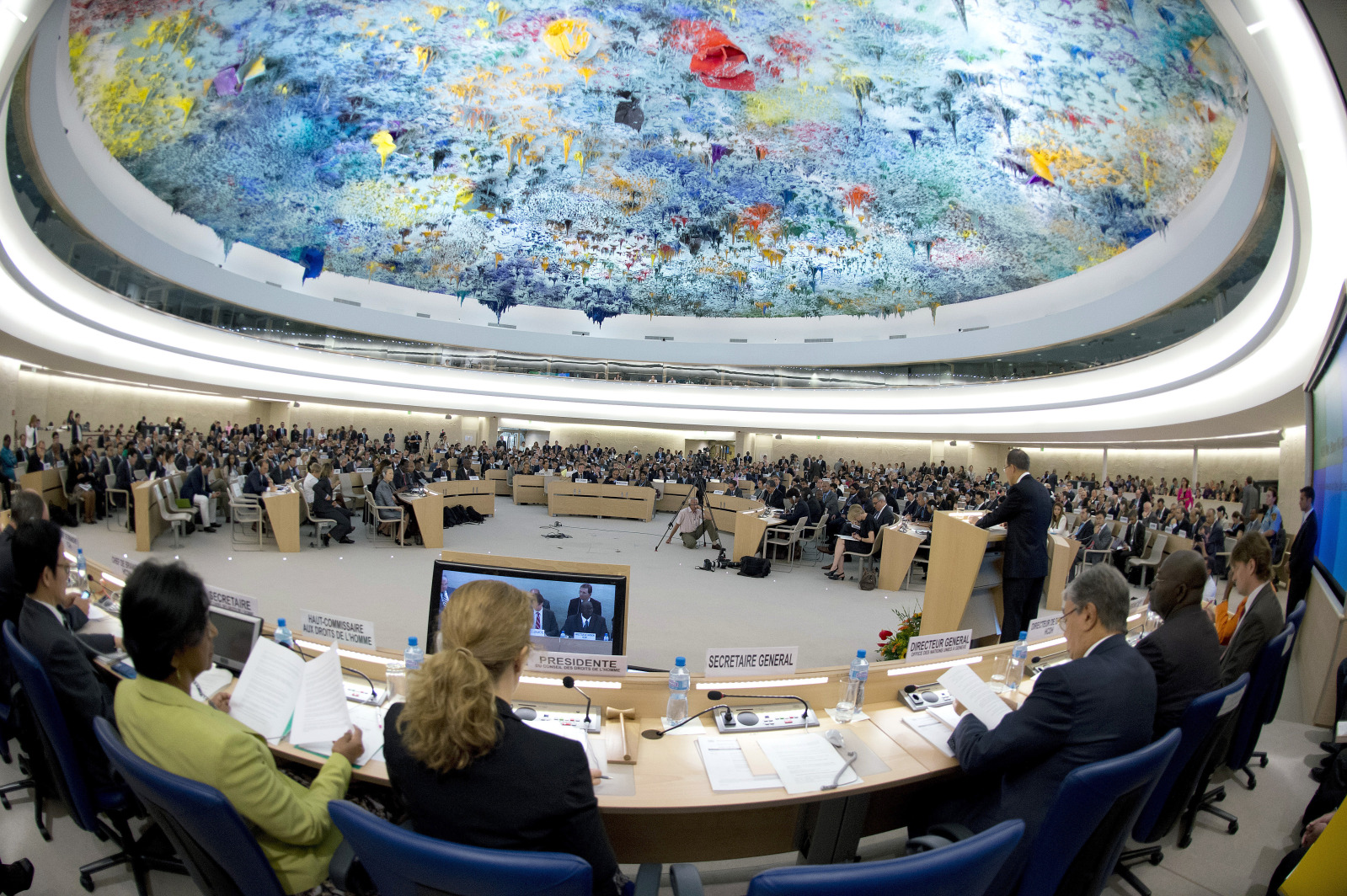37th Regular Session of the UN Human Rights Council
Item 10: Report of the Secretary General on the Role and achievements of the Office of the United Nations High Commissioner for Human Rights in assisting the Government and people of Cambodia in the promotion and protection of human rights
By R. Iniyan Ilango on behalf of
Asian Forum for Human Rights and Development (FORUM-ASIA),
CIVICUS, Freedom House, and Front Line Defenders
Thursday, 22 March 2018
Civil society groups and the media in Cambodia have faced increased restrictions, creating a climate of fear and intimidation. This has escalated rapidly following the June 2017 local elections and continues as the country nears national elections in July this year. Recently, as noted by the report, the leader of the main opposition party was arrested while later the party itself was dissolved and 118 members of the party were banned from political activity for five years.
A series of legal and administrative measures have been at the core of the government’s crack-down on civic space in Cambodia. Amendments to the Law on Political Parties allowed it to dissolve the opposition while laws such as the Law on Associations and NGOs (LANGO),the Trade Union Law and provisions of the Cambodian Criminal Code severely restrict civil society space[1], undermine fundamental freedoms and are used to judicially harass human rights defenders journalists and activists[2]. These laws, together with fiscal and other administrative measures have been used to shut down independent media outlets[3] and undermine NGOs’ activities. This repressive legal framework has been further augmented last month by amendments to the Constitution and the Criminal Code without any public scrutiny.
The amendments have the potential to allow for wide executive discretion to restrict freedoms of expression, association and assembly based on vague and ill-defined notions.[4] Unless this legal framework is altered in accordance with international human rights standards and Cambodians are able to enjoy their fundamental freedoms without fear or undue restrictions, Cambodia cannot have an environment conducive for free and fair elections.
We call on the Cambodian government to take urgent steps to end all repressive laws and reverse measures to restrict civil society, human rights defenders, the media and the opposition. The Council has failed to respond to the deteriorating situation in Cambodia and it must urgently address this through an intersessional briefing on Cambodia before the June session of this Council.
Thank You
***
For a PDF version of this statement, click here.
***
[1] Recent examples includes, the case of a man who was arrested on 8 February and charged for calling the Cambodian government authoritarian in a video on Facebook. He is being held in pre-trial detention (http://www.phnompenhpost.com/national/man-held-after-calling-government-authoritarian-facebook).
[2] Emblematic cases include the recent charges for ,independent media advocate Pa Nguon Teang (CCIM), labour rights advocate MoeunToela (CENTRAL), and activist monk Venerable But Buntenh (Independent Monk Network for Social Justice) were charged with “breach of trust” relating to funds raised for Kem Ley’s funeral, Kem Ley’s family have stated that the allegations are unfounded. It has been ordered that they be placed in pre-trial detention, Besides, On 7 February 2018, the Supreme Court upheld a 30-month sentence Tep Vanny on charges relating to a 2013 protest outside Prime Minister Hun Sen’s house. The land activist was alleged for committing aggravating intentional violence by ordering protesters to attack security guards, and she has been detained since 15 August 2016. Withal, the development of the case of former Radio Free Asia (RFA) journalists namely Yeang Sothearin and Uon Chhin was also downhill. They are arrested on 14 November 2017 based on the charge of “providing information to foreign states or agents which can undermine national defense”. On 16 March 2018, the Supreme Court denied bail for their case, citing that an investigation is still underway and it would cause significant damage if granted.
[3] On 17 January 2018, operator of an FM radio frequency was warned not to give airtime to Women’s Media Centre (WMC) due to lacking approval from the Ministry of Information (http://www.phnompenhpost.com/national/future-uncertain-womens-radio-station). In addition, the defamation trial against Cambodia Daily will be schedule on 22 March 2018.
[4] https://forum-asia.org/?p=25672



